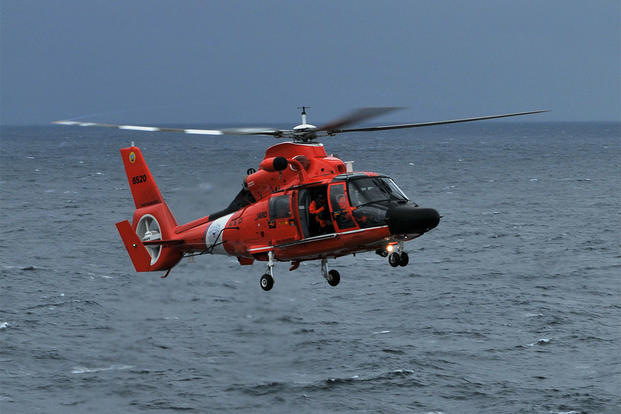Night-vision technology, which could help the U.S. Coast Guard rescue stranded boaters, nab drug smugglers and even prevent terrorists from sneaking onto American shores, is collecting dust because of a quirk in the federal bureaucracy, a lawmaker charged Tuesday.
Coast Guard choppers are equipped with the night-penetrating Electro-Optical Sensor System, but the equipment can't be activated. Although the technology is used by other Pentagon branches of the Armed Forces, the Coast Guard falls under Department of Homeland Security, and its use of the equipment is regulated by the Food and Drug Administration.
"This laser equipment is essential for the Coast Guard to carry out its mission," Rep. Duncan Hunter, R-Calif., who sits on the House Armed Services Committee, told FoxNews.com.
The system converts even the faintest light into an electronic signal readable by instruments. In addition to its use by the Army, Air Force, Navy and Marines, the technology is used in the commercial maritime industry for detecting the threat of approaching pirates.
The Coast Guard has it, but can't use it, said Hunter.
Earlier this month, Hunter fired off a letter to the FDA, first reported by The Navy Times. Coast Guard spokesman Chief Warrant Officer 3 Chad Saylor said the Coast Guard is seeking authorization to use it.
"The Coast Guard intends to use the ESS technology and is in the process of ensuring that it can be done safely," Saylor said in a statement. "The systems are administratively prohibited, and there are locks on the controls to prevent access/use."
The Coast Guard routinely carries out dangerous operations, safeguarding the nation's shores from importation of drugs and, Hunter said, potentially weapons of mass destruction. Having equipment that could aid the mission and keep Guardsmen safe, yet not being able to use it, is maddening, Hunter said.
"They're basically performing a Department of Defense mission in the Caribbean," he said. "The routes that they cover are dangerous. These are routes where 5,000 pounds of drugs are smuggled on fast boats. If these smugglers can transport that amount of drugs, there's no reason to think that this is not a serious national security issue."
Hunter's office learned about the laser issue when his chief of staff, Joe Kasper, recently visited the Hitron Jacksonville station in Florida. Kasper, a former Air Force mechanic, was stunned to learn that the Coast Guard's MH-65 helicopters are equipped with a turret-based night vision system that must be disabled because it was not approved by the FDA.
When Kasper told his boss, a former U.S. Marine, about the situation, Hunter shared his disbelief and frustration.
"You're endangering lives," Hunter said. "This is the U.S. Coast Guard, not the San Diego Police Department."
The Navy Times reported that the Coast Guard is also limited in its use of another technology, the PEQ-15 laser targeting and illumination systems. The technology is used for spotting and locking onto targets in darkness.
"Illuminators and laser sights stand to provide a clear advantage during use of force operations and other missions, but imposed limits on the use of these tools creates needless challenges and safety risks," Hunter wrote in his letter to the FDA.




























